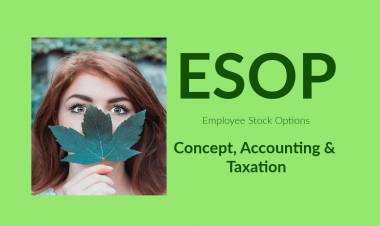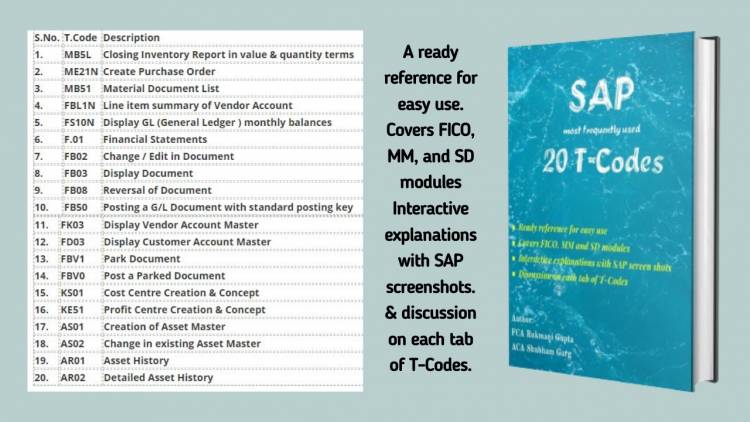Concept of Pure Agent under GST – An Analysis
In the business world, it is not possible for an entity to do all the activities by itself. There are certain activities which are either not cost effective or the entity does not have any expertise to undertake. In such cases, it finds a person who is ready to do such activities for and on behalf of the entity and eases the processing for the entity. Such a person, in general sense, is called an “Agent”.
- How does an Agent work ?

Supplies Goods/Services to the entity and/or
- Receives Goods/Services from a third party on behalf of entity and get the amount of such service/goods reimbursed from the entity.
- What is the definition of “Agent” as per GST Law ?
As per Sec. 2(5) “Agent” means a person, including a factor, broker, commission agent, arhatia, del credere agent, an auctioneer or any other mercantile agent, by whatever name called, who carries on the business of supply or receipt of goods or services or both on behalf of another.
On reading the definition it is clear that
- an agent can be called by many names like broker, commission agent, factor etc. ;
- he carries on a business of supply or receipt of goods/services on behalf of another person.
- What is the meaning of “Pure Agent” under the GST law ?
“Pure Agent” is defined in an explanation to Rule 33 of the CGST Act, 2017 as under :
For the purposes of this rule, the expression “pure agent” means a person who-
(a) enters into a contractual agreement with the recipient of supply to act as his pure agent to incur expenditure or costs in the course of supply of goods or services or both;
(b) neither intends to hold nor holds any title to the goods or services or both so procured or supplied as pure agent of the recipient of supply;
(c) does not use for his own interest such goods or services so procured; and
(d) receives only the actual amount incurred to procure such goods or services in addition to the amount received for supply he provides on his own account.
The following things are important to know after reading the above definition :
- There must be an agreement between the recipient of supply (say A) and the person working as an agent (say B) and the agreement should be clearly evident that B shall work as a pure agent of A and incur cost during the course of supply on behalf of A ;
- While acting as a pure agent of A, B does not have any personal interest in the goods/services procured by him on behalf of A ;
- B does not use the goods/services procured for A, in his personal interest ;
- B gets the reimbursement of actual amount incurred to procure goods/services on behalf of A.
Let us take an example :
A is an importer
B is a customs clearing agent
A wants B to arrange the transportation of goods also which is in addition to the main supply as clearing agent service provider.
This arrangement has two aspects :
- B provides A the service of customs clearing agency ; and
- B pays a sum, on behalf of A, to a transporter called C
|
Customs Clearing Service |
Principal to Principal |
|
Expense incurred on Transportation |
Pure Agent (Subject to the satisfaction of definition of Pure Agent ) |
- What does the rule 33 exactly say ?
Notwithstanding anything contained in the provisions of this Chapter, the expenditure or costs incurred by a supplier as a pure agent of the recipient of supply shall be excluded from the value of supply, if all the following conditions are satisfied, namely,-
(i) the supplier acts as a pure agent of the recipient of the supply, when he makes the payment to the third party on authorisation by such recipient;
(ii) the payment made by the pure agent on behalf of the recipient of supply has been separately indicated in the invoice issued by the pure agent to the recipient of service; and
(iii) the supplies procured by the pure agent from the third party as a pure agent of the recipient of supply are in addition to the services he supplies on his own account.
From the above, we can understand that :
- If certain conditions are satisfied, the value of expense incurred by a pure agent (B) shall not be added in the value of supply ;
- The recipient (A) authorises the pure agent (B) to make payment to a third party (C) on his behalf ;
- The pure agent separately discloses the amount of expense it incurs on behalf of A ;
- The expense incurred by B are in addition of services he provides to A on his own account.
Let us take it further :
A asks B to get his goods cleared from customs and transport the same at A’s premise.
A authorised B to incur expense on his behalf and payment for the same shall be reimbursed on actual basis.
Now B agreed to this arrangement and hired C, a transporter and after getting the goods cleared from customs authority, C transported the goods at A’s place. For this, C received X amount of money from B.
After the entire process completed, B raised a bill for :
- Customs clearing service – Y/-
- Transportation expenses paid to X/-
As discussed above –
B has to fall under the definition of Pure agent and satisfy the conditions of Rule 33.
|
Customs Clearing Service |
Principal to Principal
|
Y/- |
|
Expense incurred on Transportation |
Pure Agent (Subject to the satisfaction of definition of Pure Agent)
|
X/- |
If the provisions of rule 33 are adhered to, GST shall be payable on Y/- as X/- shall not be included in the value of supply.
 Download APP
Download APP






































